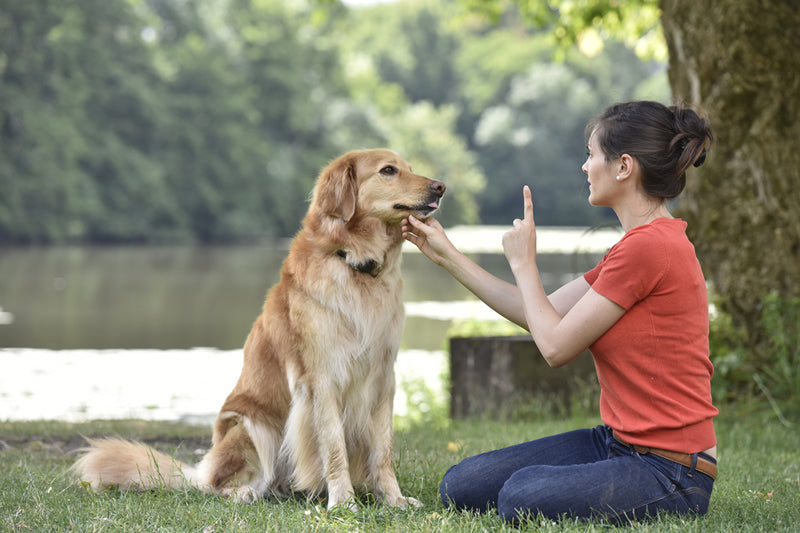
Dog Barking at Doorbell: Understanding and Managing the Behavior
Share
For many health-conscious pet owners, the sound of a dog barking at the doorbell is a familiar yet frustrating phenomenon. While this behavior can be a natural response, understanding the underlying reasons behind it and learning effective management strategies is crucial for both the pups well-being and your peace of mind.

Why Do Dogs Bark at the Doorbell?
When a doorbell rings, it's not uncommon for dogs to respond with a stream of barks. This reaction can be attributed to a few intrinsic dog instincts.
Communication
Dogs use barking as a form of communication, alerting their owners about potential intruders or changes in the environment. Thus, when your dog barks at the doorbell, theyre simply trying to convey, 'Hey, something's happening!' This behavior derives from their natural instinct to protect their territory.
Excitement and Anticipation
Your furry friend might associate the doorbell with the arrival of guests, causing a spike in excitement levels. This excitement-driven barking means your pup is eagerly awaiting new faces, smells, and experiences.
Health Impacts of Excessive Barking
While a moderate amount of barking is normal, excessive barking can lead to stress and anxiety not only in dogs but also in their owners. Prolonged barking can strain a dog's vocal cords and even contribute to behavioral issues if left unchecked.
Pet owners being health-conscious must also be aware of the potential stress they endure from continuous barking, which can affect their mental state negatively.
Strategies to Manage Barking
Addressing dog barking at the doorbell requires patience and the application of effective strategies. Here are a few methods to consider:
Positive Reinforcement
Reward your dog with treats or petting once they stop barking at the doorbell. Positive reinforcement can help in conditioning dogs to associate silence or staying calm with rewards, which can gradually reduce their barking.
Learn more about dog barking training on Petzooli.
Desensitization
This method involves getting your dog used to the sound of the doorbell. Regular exposure to the sound at varying volumes can help desensitize the dog, lessening its reactive impulse over time. This strategy requires patience and consistency.
Toy Distractions
Providing toys to your dog can be an effective distraction from the triggering sound of the doorbell. Chew toys, for instance, can engage their attention, redirecting their focus away from barking.
Discover more about dog barking control devices to further manage your dogs behavior.
Utilizing Professional Help
Sometimes, approaching a dog trainer or behaviorist can be the best decision for persistent barking issues. Experts can offer insights and methods tailored to your dogs specific traits and behaviors.
Find professional dog training tips to effectively manage barking asynchronously at Puppy Point.
Balancing Health and Happiness
To ensure your furry friends well-being, balancing their health and happiness is vital. Sufficient exercise, a nutritious diet, and effective training can improve their overall demeanor, consequently reducing barking. Remember, a healthy dog is a happy dog!
Final Thoughts
Addressing the issue of a dog barking at the doorbell not only fosters a happier living environment but also promotes a healthier lifestyle for both pet and owner. By implementing these strategies, you can help your four-legged companion mitigate their reactive nature, focus on well-being, and embrace tranquility.

FAQs About Dog Barking at Doorbells
Why does my dog bark excessively at the doorbell?
Barking at the doorbell can be due to excitement, a territorial response, or simply a habit.
Can training reduce my dogs doorbell barking?
Yes, positive reinforcement and desensitization training can help reduce your dogs doorbell barking effectively.
Is excessive barking harmful to my dogs health?
Excessive barking can lead to vocal strain and stress in dogs, impacting their overall well-being.
This article contains affiliate links. We may earn a commission at no extra cost to you.
